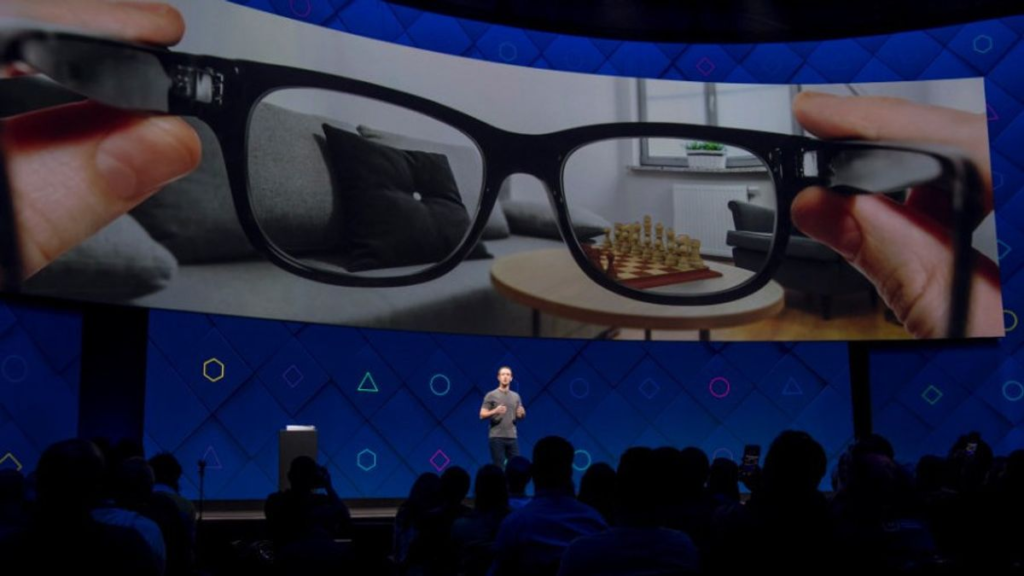During an exclusive interview with The Verge at Meta Connect 2024, CEO Mark Zuckerberg articulated his daring vision for what is next in tech (aiming for smart glasses to supplant smartphones). Throughout the conversation, Zuckerberg fervently explored why the future belongs to wearable technology and how Meta, backed by its Orion smart glasses development, intends to lead this movement. He also stressed that at least 1 to 2 billion people will replace smartphones with smart glasses in the next 10 years.
From Mobile to Glasses
Meta’s CEO explained that the company’s adventure with smart glasses began with a broader contemplation of its experiences in mobile platforms. As Facebook came about during the changeover from web to mobile, Meta lost a golden opportunity to take charge of the mobile market. “We weren’t born and raised on mobile,” said Zuckerberg, alluding to Meta’s beginning on the web. Smartphones, despite their innovative nature, have some inherent limitations. “Though mobile devices are handy, they’re small and can separate you from interactions,” he pointed out, bringing attention to the requirement for a richer, ongoing computing environment.
The existing gap prompted Zuckerberg to concentrate on the next move in the platform transition. According to him, “Mobile was not the endpoint.” With the end of 2014, Meta recognized it was too late to influence mobile’s growth, so they started laying the groundwork for what was to come. The answer? Zuckerberg sees Orion, Meta’s glasses project, as a key part of the upcoming computing platform.
The Vision Behind Orion
According to Zuckerberg, Orion signifies more than a minor upgrade in technology; it could entirely change the manner in which we interact with digital media. In his view, Orion smart glasses perform two essential tasks. At the outset, they display holograms in the physical world, resulting in a real sense of realism. Whether users launch a virtual workstation from a coffee shop or view a movie in full screen while flying, the experience appears smooth. According to Zuckerberg, “It allows you to sense being with people from anywhere.”
Secondly, the design of Orion includes a deep integration of AI into users’ daily experiences. The glasses equip users to demonstrate their visual and auditory experiences to others and enhance real-time interaction with AI. With the glasses, users can communicate in two ways: via cues they hear or through silent inputs that others do not see. This covert exchange helps users to keep engaged with their surroundings while still being able to stay focused. According to Zuckerberg, “AI is perfect for this device,” because he explained that the evolution of holograms took a significant amount of time, while AI capabilities developed at a speed that surprised them.
A Partnership for the Future
Zuckerberg thinks that because over 1 to 2 billion people wear traditional glasses each day, the acceptance of smart glasses is sure to happen within the coming decade. These days, even individuals who don’t wear glasses can take to this technology. Still, Meta has the challenge of styling these glasses as ‘normal’ while integrating advanced holographic functions. The resolution for this issue, according to Meta, was partnering with EssilorLuxottica, who are behind Ray-Ban. This association allowed Meta to fashion stylish, everyday glasses that come with cameras, microphones, and superior audio for streaming and content capture, even where there’s no display.
As a result of this partnership, Ray-Ban Meta smart glasses represent a move toward achieving fully functional holographic glasses. According to Zuckerberg, although AI is now the leading feature, these glasses represent the initial phase in the pursuit of fully immersive holographic devices.
Challenges and Future Developments
The progress achieved by the Orion project has come along with considerable difficulties. Even though Zuckerberg described Orion as a “next-generation multibillion-person computing platform,” the product went unwitnessed by the public. The need for more refinement in size, brightness, resolution, and affordability caused a halt to the original plans for marketing Orion as a consumer product. Zuckerberg suggested that Orion’s iteration two might be the one to make its debut in the hands of consumers.

Meta’s AR/VR division responsible for Orion, known as Reality Labs, has experienced considerable financial pressure. As of June 2022, the division has reportedly been losing $1 billion each month, according to Zuckerberg who believes the development of Orion has added up to over $5 billion thus far. He pointed out that the budget for smart glasses from Reality Labs has sometimes triumphed over both AR (augmented reality) and MR (mixed reality) financial allocations.
The Road Ahead
Zuckerberg continues to be hopeful about the future of smart glasses, even amid the financial challenges and hurdles in development. Mr. Yagi sees AI as a transformative technology that will benefit smart glasses, as well as smartphones. Even though smart glasses are in their early stages, Zuckerberg’s faith in their capabilities continues to be robust. “If you can do anything merely by asking AI, that’s pretty exciting,” he emphasized, suggesting that the evolution of AI could change the landscape of both smartphones and smart glasses,” he stated. Though much work remains, Meta’s vision is clear: With smart glasses, Meta believes it will spearhead the charge in the upcoming platform transition, which it believes is the future of personal computing.





